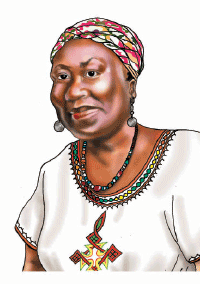Morality. Noun. 1. Moral quality or character, rightness or wrongness, as of an action. 2. Being in accord with the principles or standards of right conduct; virtue. 3. Principles of right and wrong in conduct; ethics.
It is reported (in the book we’re currently going through in my Reading Club) that at a meeting held in Berlin just days before the collapse of the Soviet Union, the then Soviet minister of culture and religion was overheard saying that “no nation can be governed unless there is morality among its people”. The Soviet minister, himself a self-confessed atheist, then added that there could be no morality without religion. It would be interesting to consider the apparent contradictions in the minister’s position and beliefs, but that is not the intent here. Instead, let us ask whether the converse of his statement is equally true – that is, could there be religion without morality?
Oh, most certainly. The nature of religion is such that it is susceptible of being reduced to a set of outwardly observable actions: some specific ways of dressing, of doing things, even of speaking. That was the problem with the Pharisees – they had reduced Judaism to long robes and beards, long prayers, and almsgiving in the marketplaces where they could be seen by everyone. It was for that reason that they were the ones who drew the ire of Jesus when he walked among men: prostitutes, tax collectors and adulteresses were welcome, but not the Pharisees who claimed to have religion but were in reality blind, not recognising their own condition of great need. They had neglected the real issues that true religions are supposed to care about first and foremost: love of fellow human beings and concern for matters of truth and justice.
There is plenty of religion in our country. On Monday, November 10, 2014 the “Nigerians4Change” group published an advertorial on page 25 of The Punch in support of the declaration of President Goodluck Jonathan which was to come up the following day. That advert dripped with religion from the first to the last word: 13 uses of “God”, apart from instances of “Allah”, “the Lord” and “the Almighty”. The message was simple and direct – this man had been ordained by God to lead Nigeria, and anyone who opposes him is actually opposing God. The concluding sentence was: “The Lord is on the move again!”
One is bound to wonder, what (kind of) God do Nigerians worship? Clearly, a god without morality; one who does not differentiate between right and wrong, and who does not demand uprightness in conduct. Many have found this god easy to serve. All he (it?) requires of you is faithful lip service, some of your money and (if you are willing) a couple of hours of your time on a weekly basis during which you engage in some frenzied dancing and in raining curses upon your enemies as a form of prayer. That god is happy to have most of the nation’s resources in private pockets and wasted on political rallies – he (it?) could care no less that many of the nation’s citizens are hungry, that they are dying in senseless accidents or wasting many hours of their lives because of the horrible state of the roads, or that they continue to live in darkness. That god does not demand any explanation, let alone an acknowledgment of wrongdoing if the airplane of one of his (its?) high-profile servants engages in any suspicious activity; rather, what is required is that those who ask any questions be thoroughly abused.
The citizens themselves are no better, unfortunately, and are not so much to be pitied. They have chosen to serve the same god as their big men, most likely out of covetousness: if that god succeeds in taking a shoeless little boy and raises him to such a great height, who knows what he (it?) can do for them too? So they go ahead swindling and back-stabbing one another, sucking as much blood from each other as possible – and return to give thanks for “uncommon favour” at the altar of their god. What is this incredible display of religion that does not seek to transform one’s way of living?
Permit me to quote further from the book referred to above (Loren Cunningham’s The Book That Transforms Nations): “Picture a nation as a tree. It is rooted in the soil of its worldview – that is, the nation’s general view of reality. What a nation believes to be true forms its roots. From those roots grows the trunk – the nation’s values. The tree’s branches are laws, policies and practices. The leaves are various forms of cultural expression.” You can tell a tree by its leaves. If the various forms of cultural expression being manifested among us are the leaves of our national tree, what do they tell us about the nature of that tree?
Our current cultural expression is extremely wasteful – just look at the conduct of the affairs of our leading political parties. We have also enthroned a culture of revering exalted positions and not caring how people attain them. And yet things have not always been this bad. There was a time when our tree was much healthier; when the soil, the roots, the trunk and the branches all worked to nourish the people. Just how did we get here?














